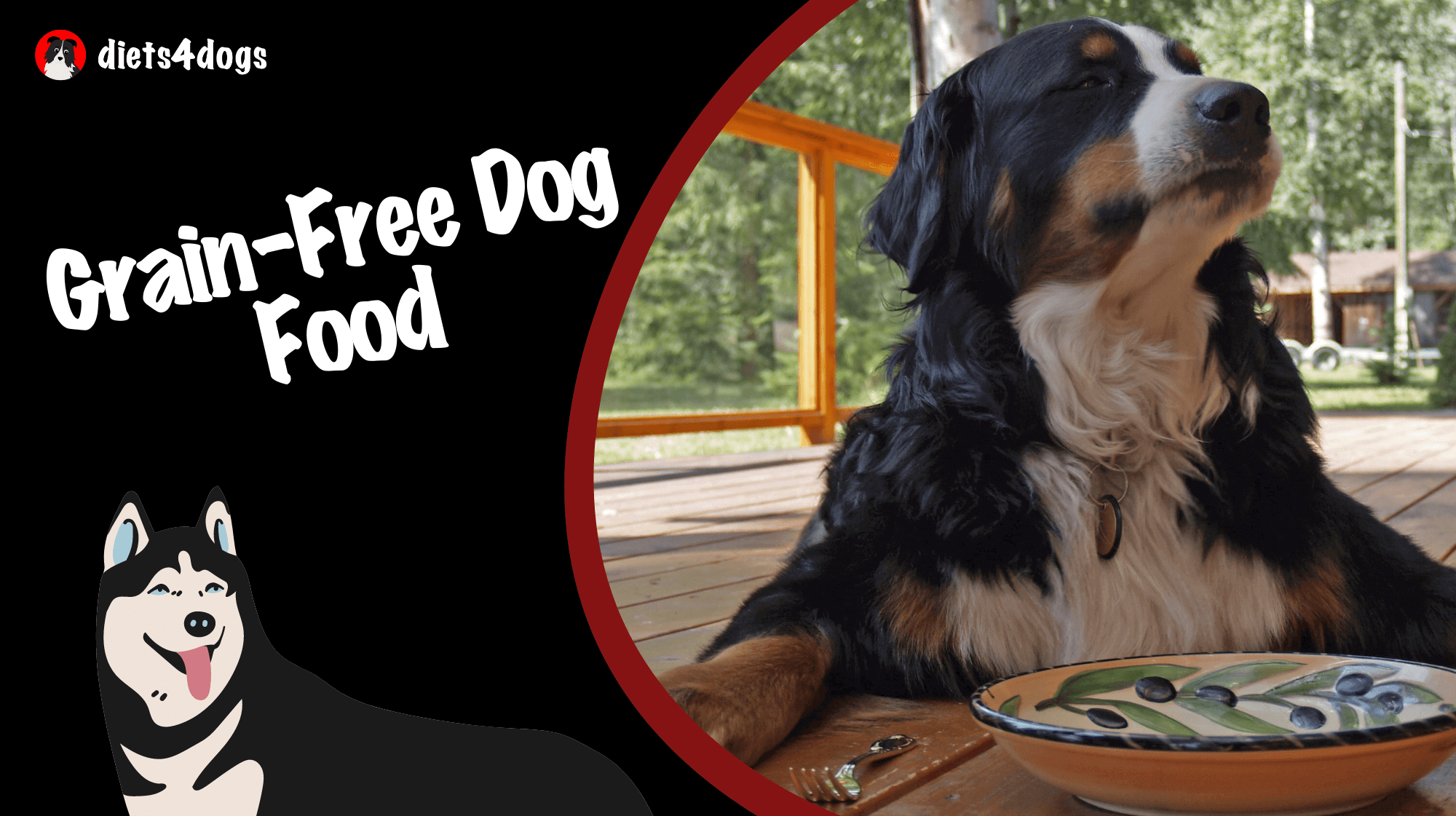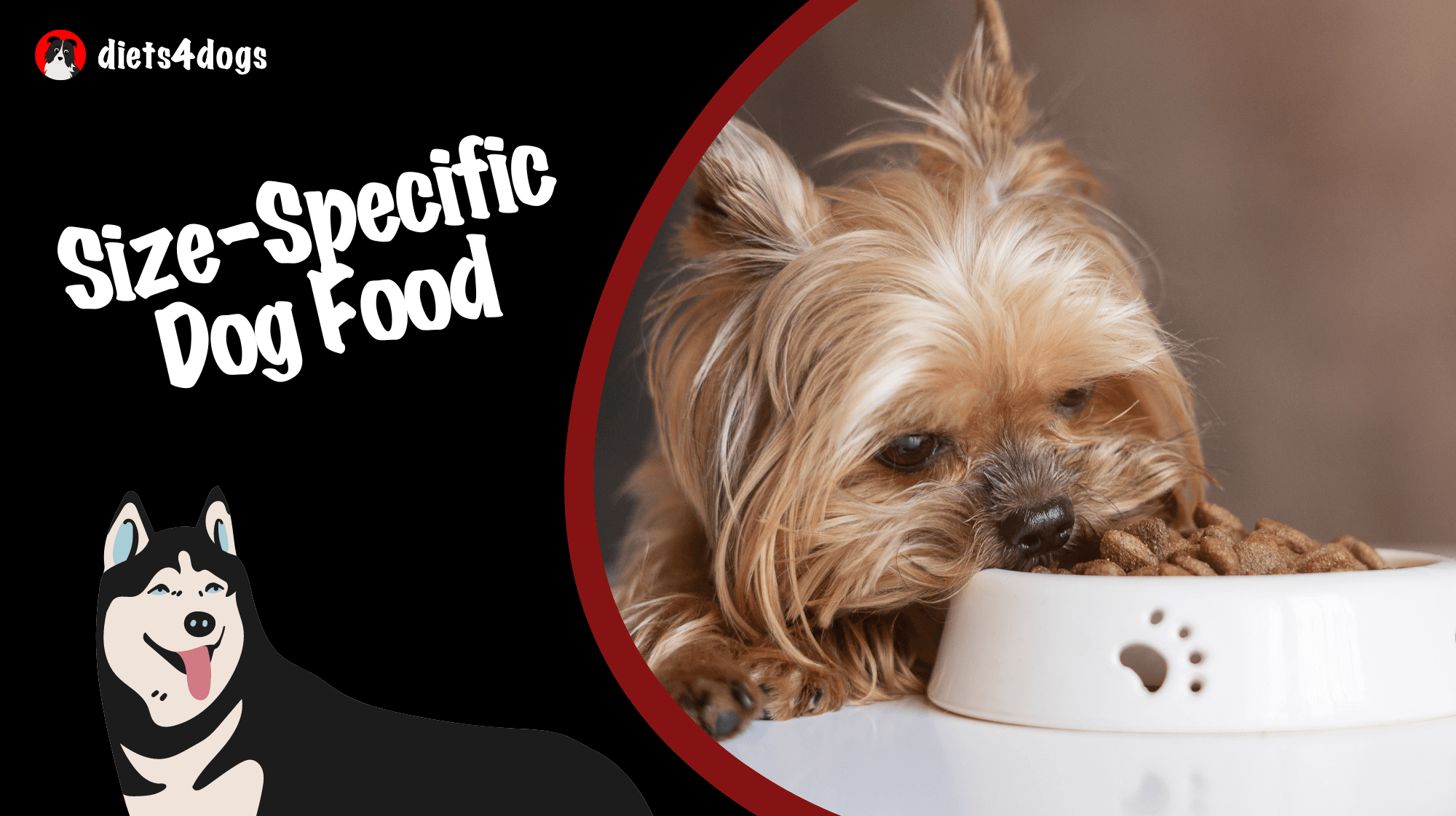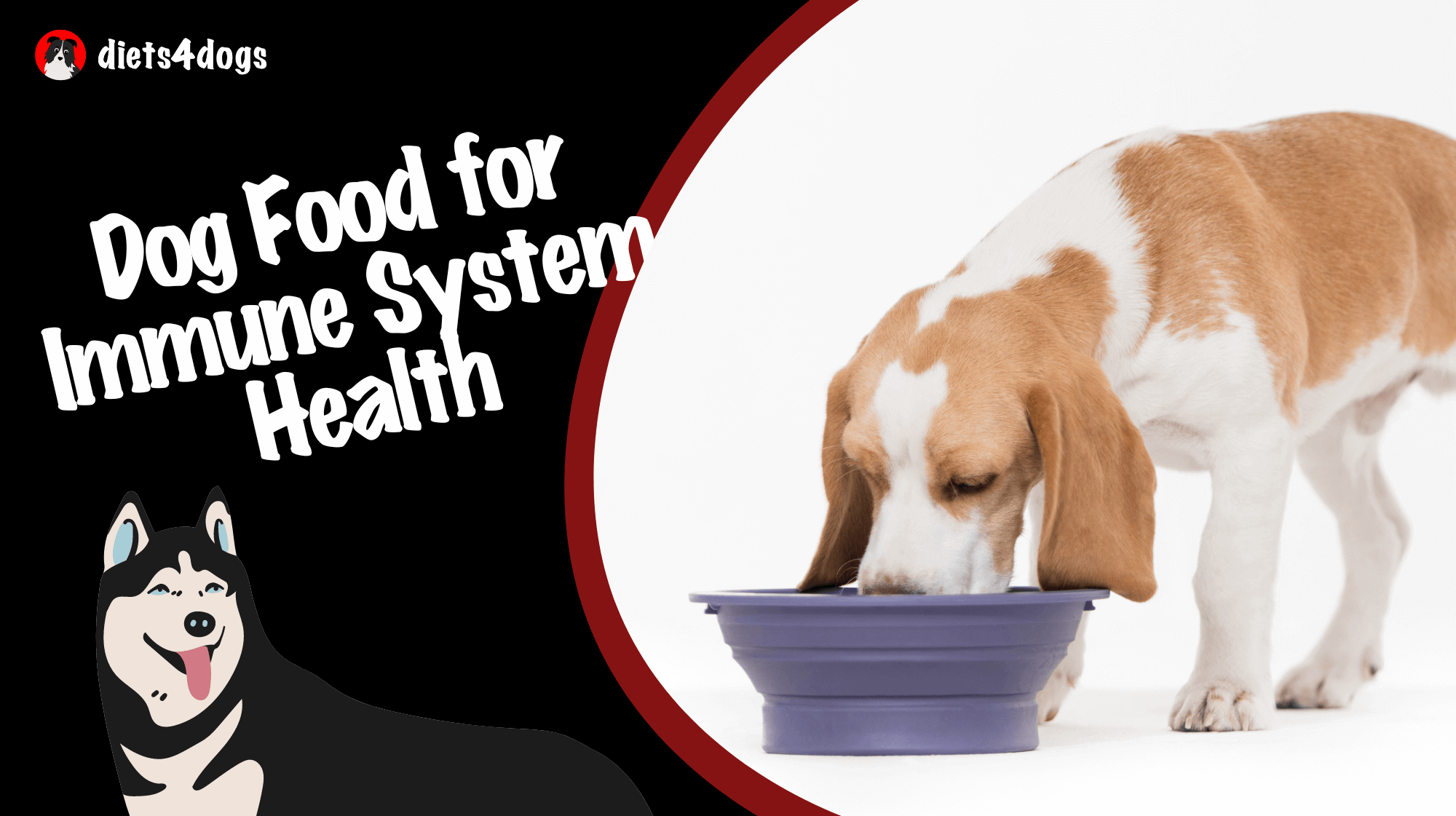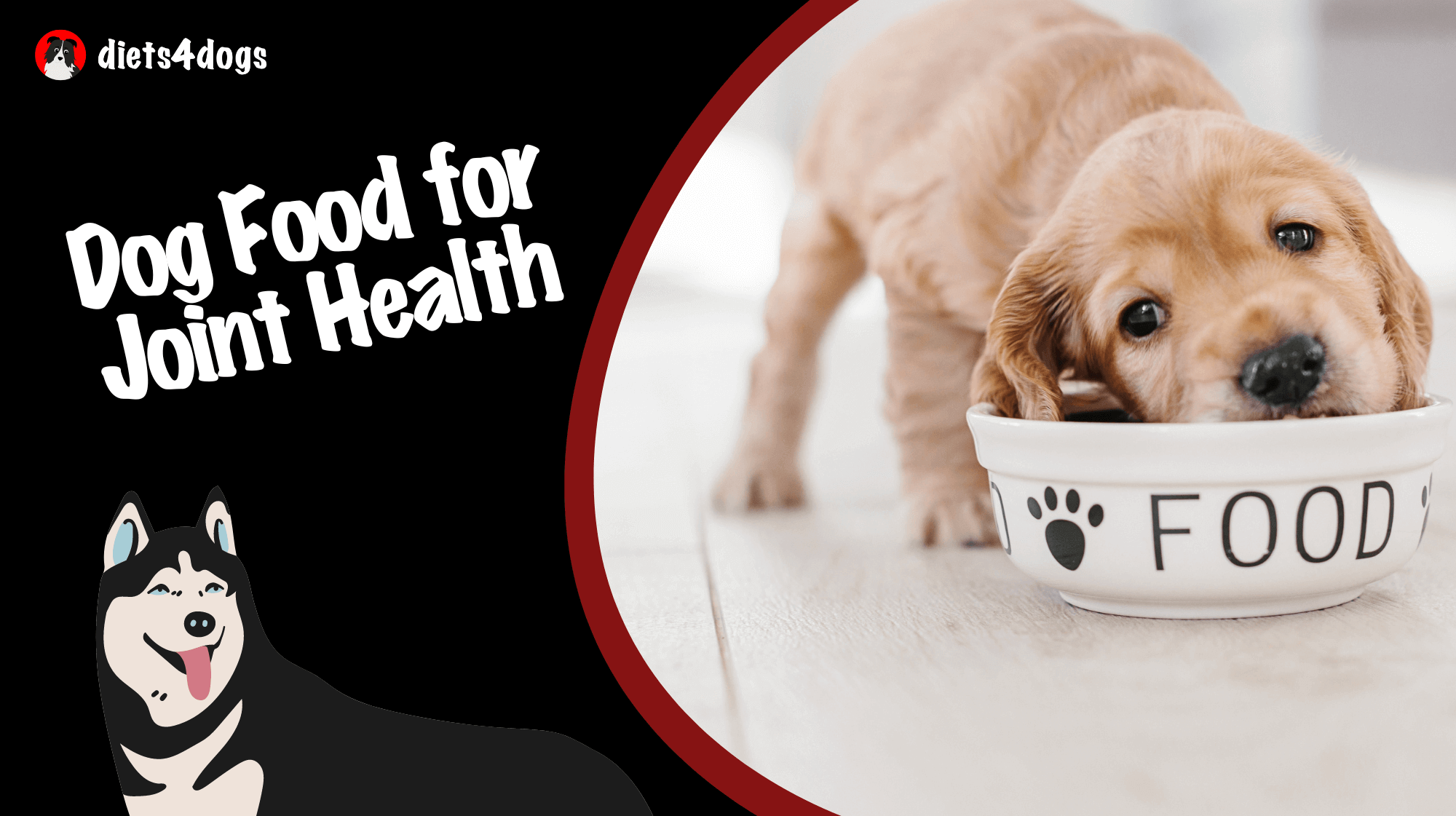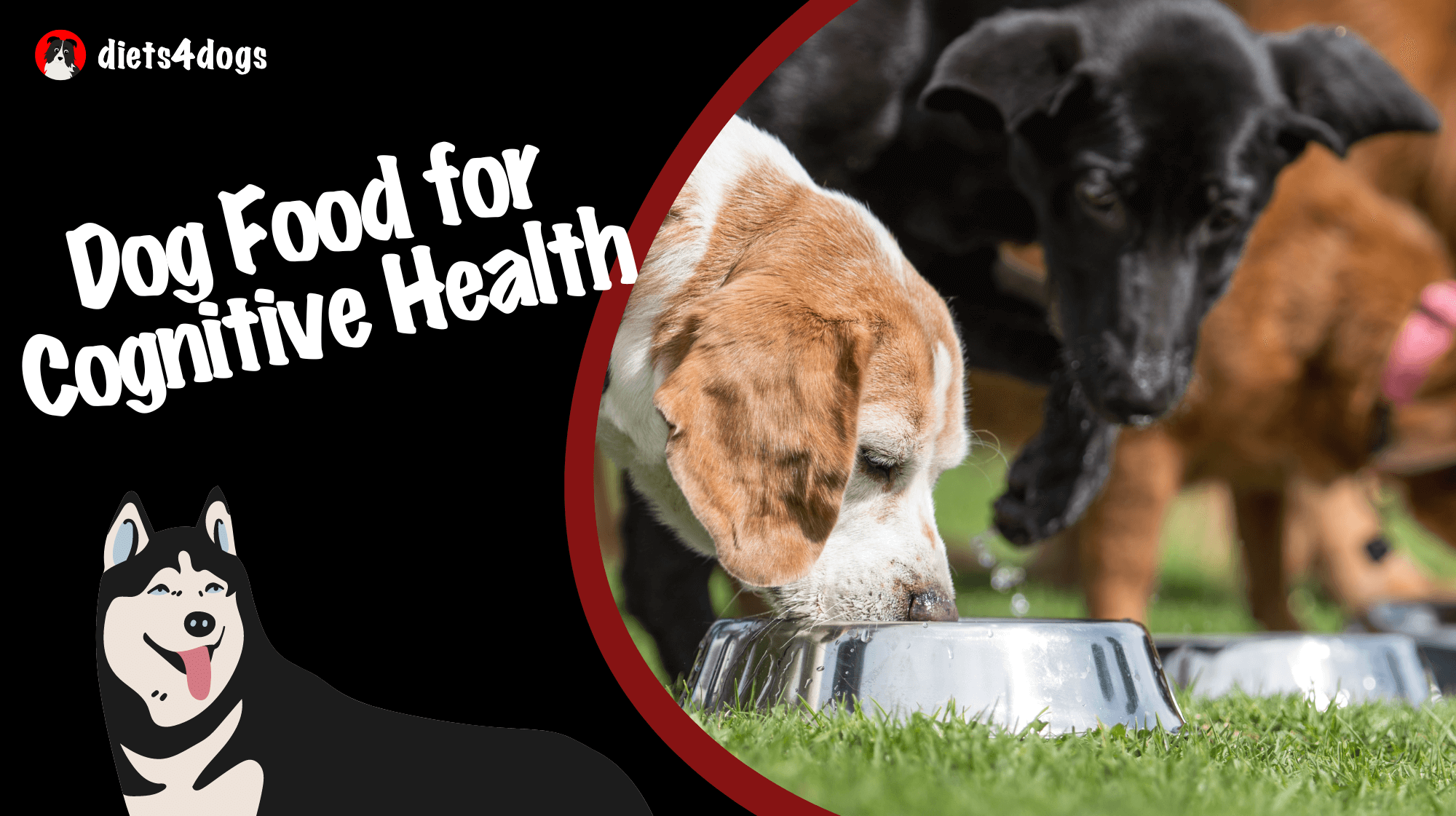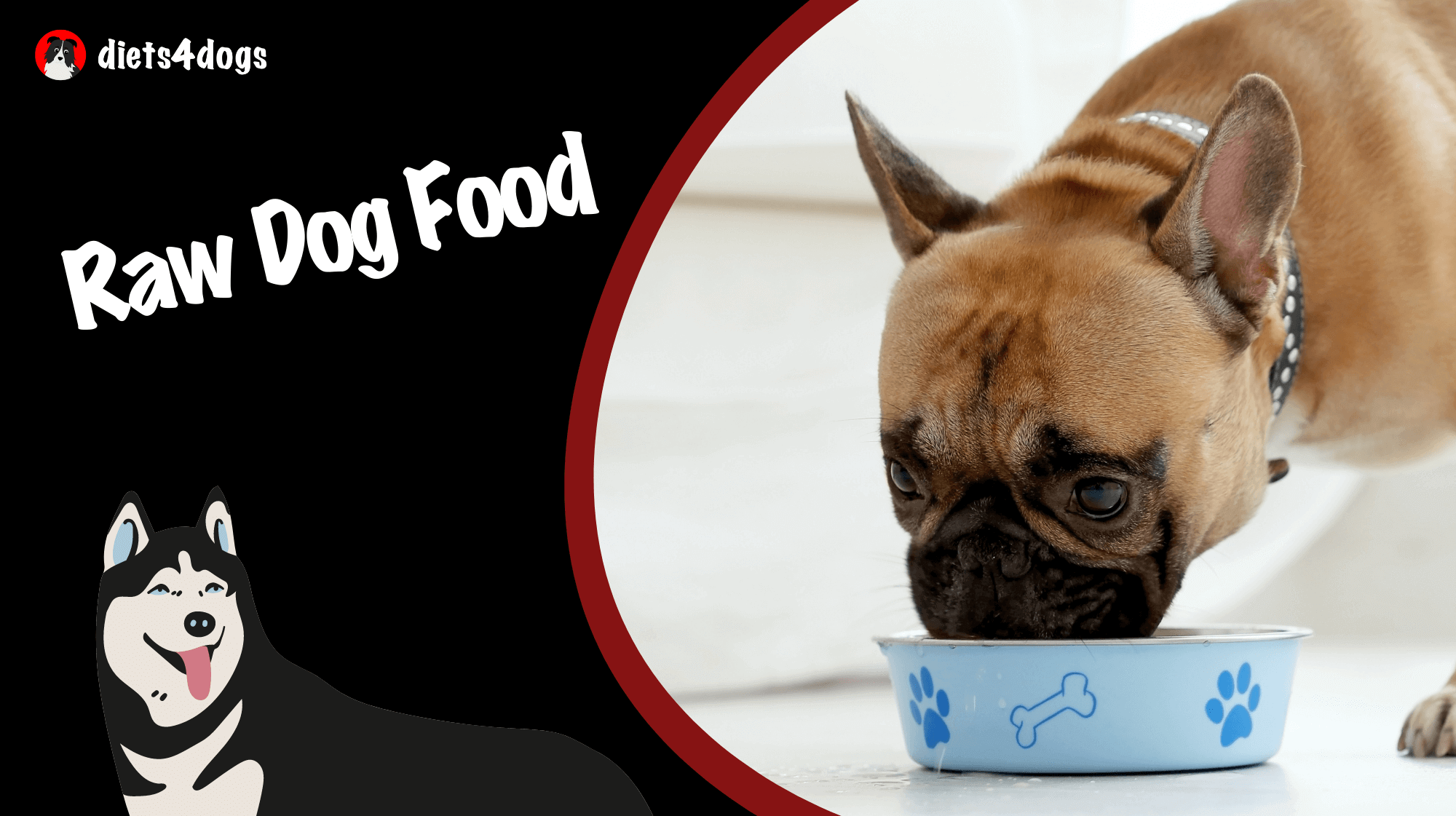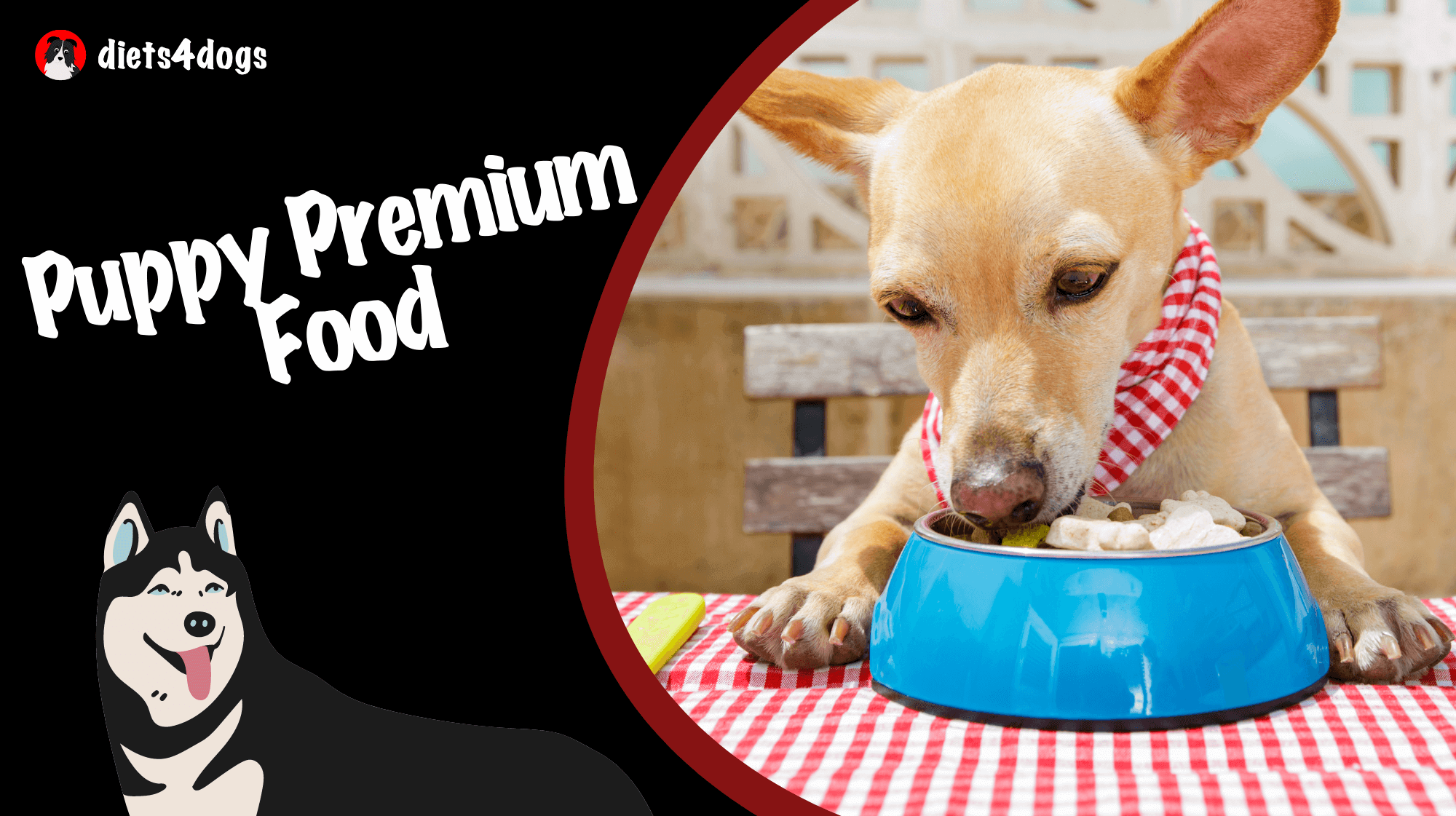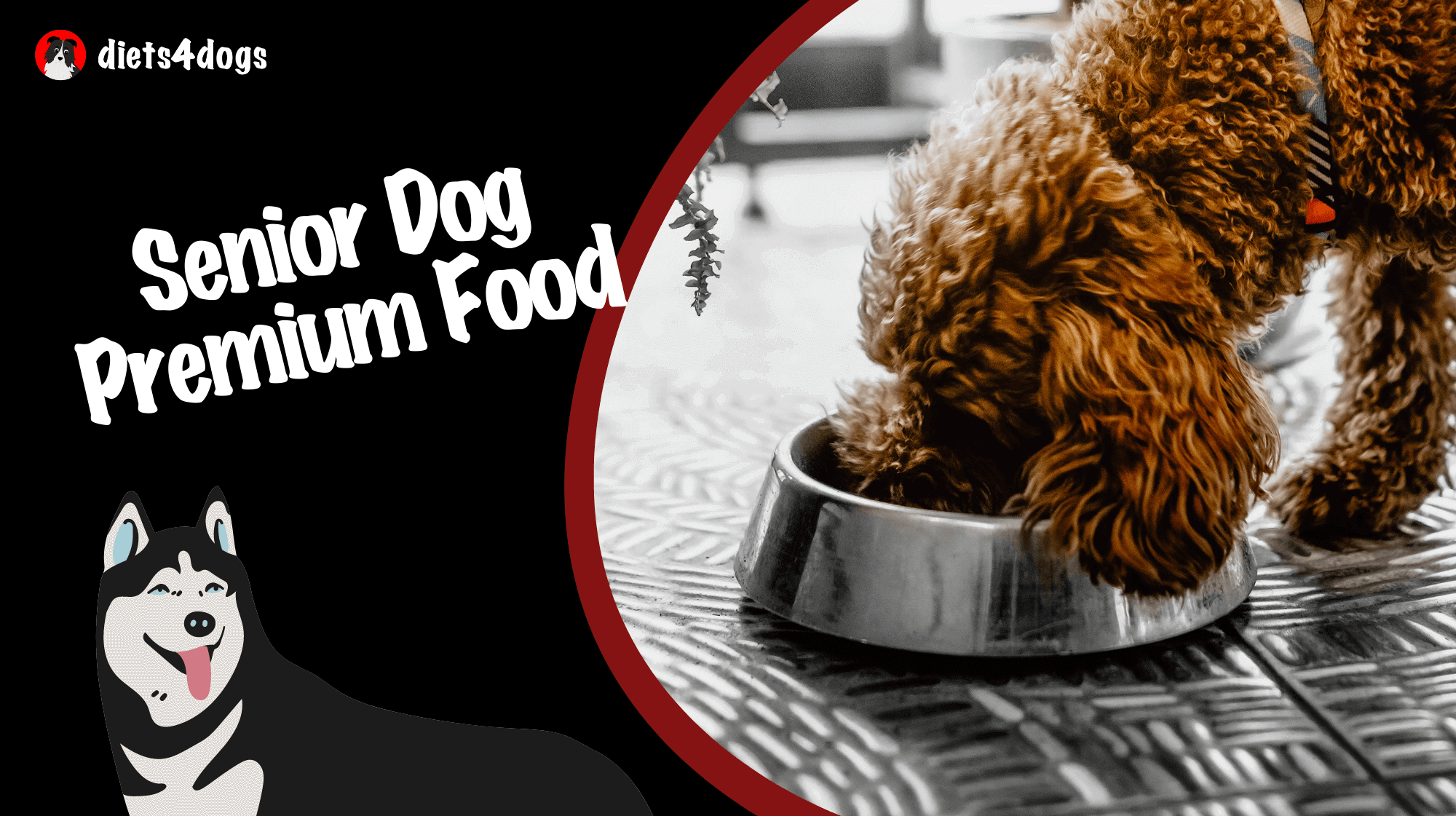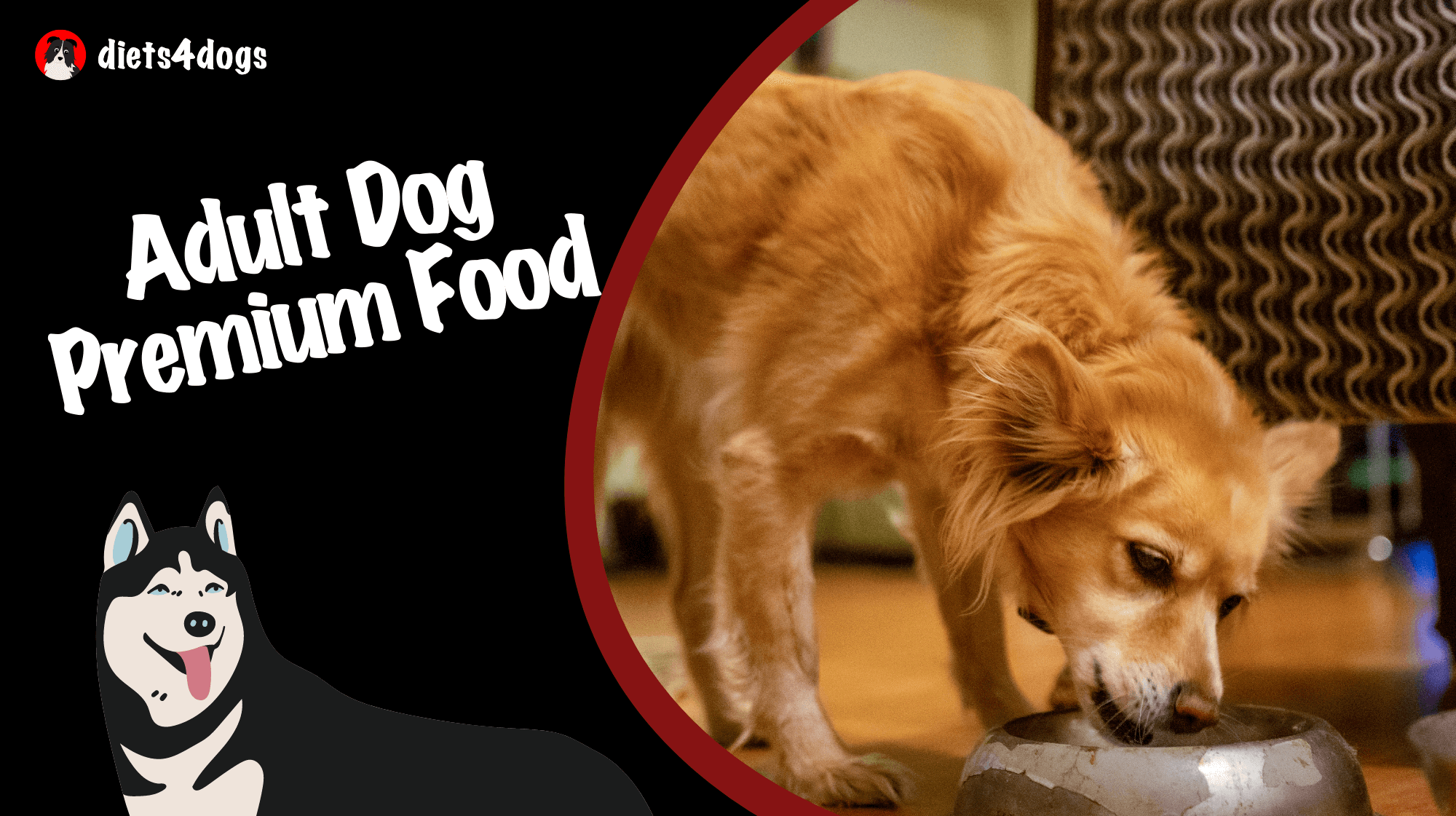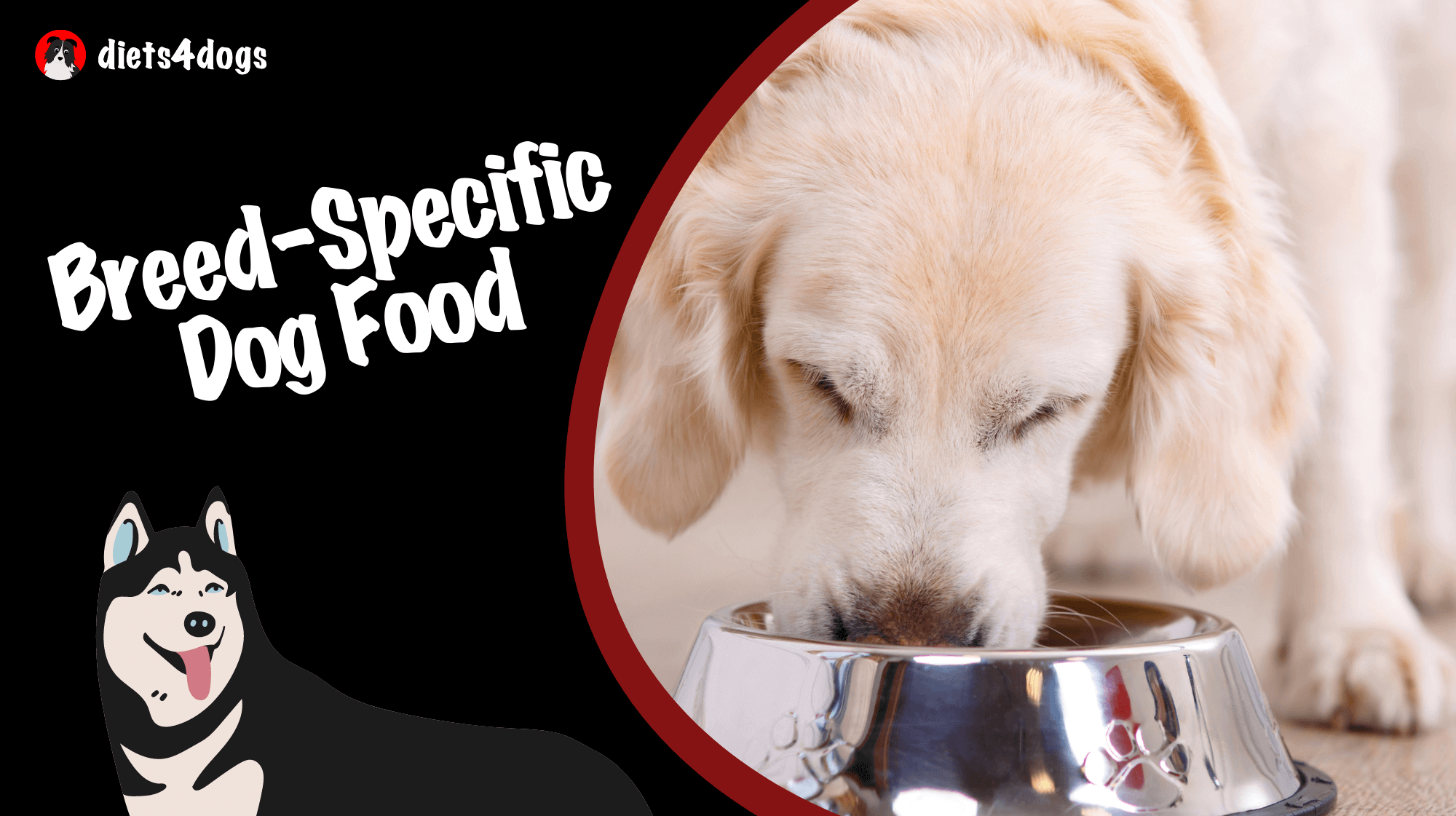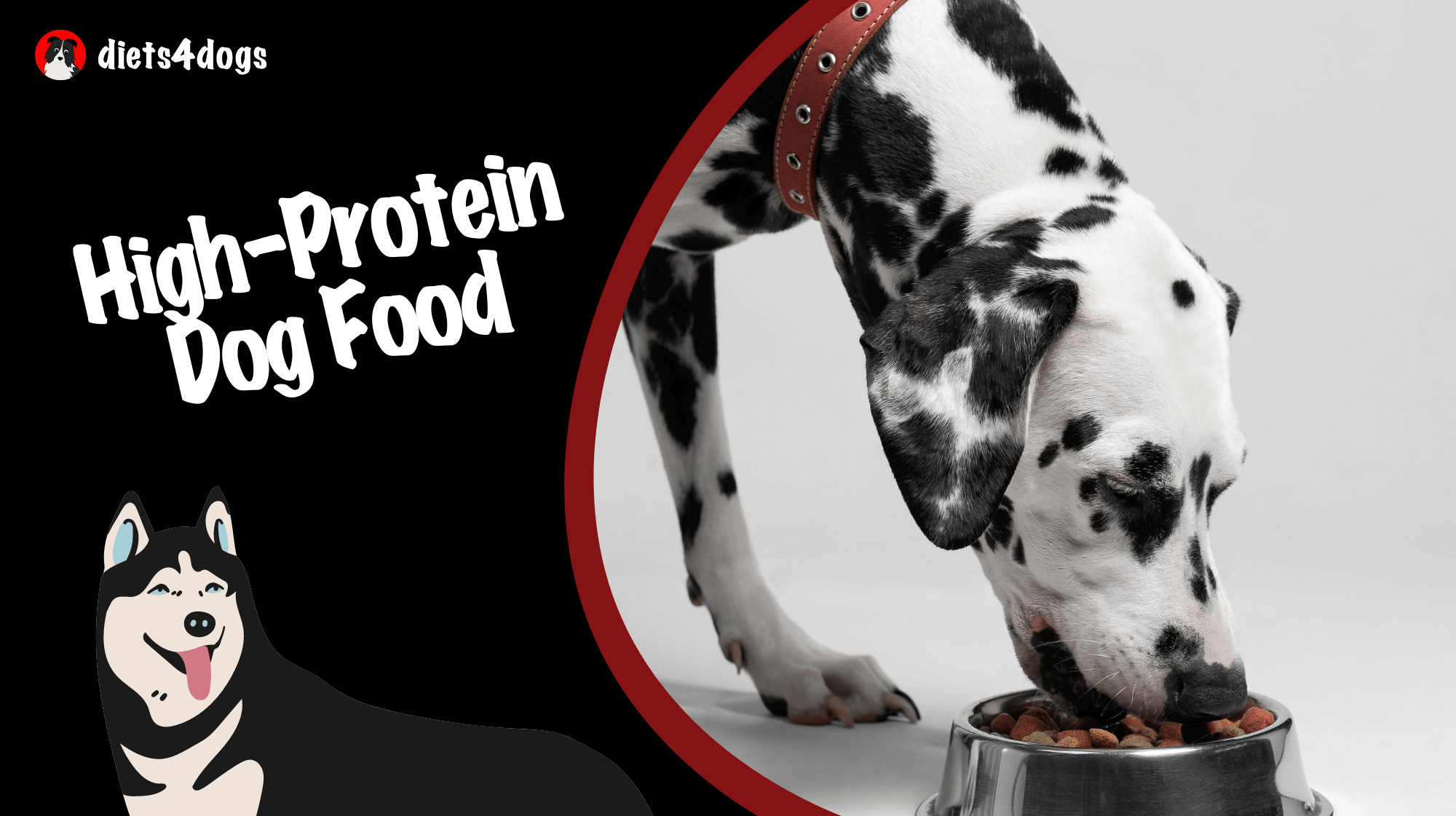Welcome, fellow dog lovers and pet parents, to an exciting exploration of grain-free dog food – a delectable world of nutritious goodness that may just revolutionize your furry friend’s dinner time! Our fluffballs need our love and attention and our conscientious efforts to provide them with the best diet possible.
So don your detective cap and join us in unraveling the mysteries of benefits such as improved digestion and reduced allergies, as well as the top premium brands that offer scrumptious grain-free options for your beloved pet. By the end of this thrilling read, you’ll be equipped to make an informed decision and find the ultimate chow that’ll have your dog howling for joy!
What is Grain-Free Dog Food?
Grain-free dog food is a type of pet food that does not contain grains such as wheat, corn, barley, oats, rye, and rice. These foods are designed to more closely mimic a dog’s natural, ancestral diet, which is primarily meat-based. The ingredients in grain-free dog food often include a variety of meats, vegetables, fruits, and other non-grain sources of carbohydrates such as sweet potatoes or peas.
The concept behind grain-free dog food comes from the belief that dogs, as descendants of wolves, are not biologically designed to consume a diet high in grains. Proponents argue that dogs can more easily digest grain-free diets and may lead to improved skin and coat health, increased energy levels, and fewer digestive issues.
However, it’s important to note that grain-free diets are not suitable for all dogs. Some dogs may not thrive on a grain-free diet, and there has been recent research suggesting a potential link between grain-free diets and a specific type of heart disease in dogs known as dilated cardiomyopathy (DCM).
As with any dietary choice for your pet, it’s crucial to consult with a veterinarian before switching your dog to a grain-free diet to ensure it will meet their nutritional needs and support their overall health.
Grain-Free Dog Food: Benefits and Top Brands for Your Pet
Grain-free dog food offers potential benefits like improved digestion and reduced allergies for dogs with sensitivities to grains. Some top brands that provide premium grain-free options include Orijen, Blue Buffalo, and Wellness CORE. When selecting the right grain-free food, consider factors like your dog’s breed, size, age, and health needs, and be sure to consult your vet for personalized recommendations.
The Wonders of Grain-Free Dog Food
Before we dive into the nitty-gritty of grain-free dog food and its myriad benefits, let’s take a step back and understand why our precious pups might need such special diets. With the rise in awareness about potential food sensitivities and allergies in our canine companions, more and more pet owners are opting for grain-free options to ensure their furballs live their best lives.
Benefits of Grain-Free Diet for Dogs
Improved Digestion
Grains like wheat, corn, and soy are common culprits for digestive issues in dogs. By opting for grain-free premium dog food, you can help alleviate gastrointestinal problems and ensure smoother processing of nutrients by your dog’s system. This means a happier pup with a more comfortable tummy!
Reduced Allergies
It’s not uncommon for dogs to develop allergies to grains, which can lead to skin irritations, itching, and infections. Going grain-free can help minimize your dog’s exposure to allergens and reduce the risk of potential health complications arising from food sensitivities.
Optimal Weight Management
Often, grain-free dog food formulas are lower in carbohydrates and higher in protein, which can support weight management and muscle building. Although each dog’s nutritional requirements may differ, this can be an essential consideration for optimal health and vitality.
Top Grain-Free Dog Food Brands to Spoil Your Pup
Now that we’ve discussed the benefits of grain-free diets, it’s time to dive into the top brands that deliver on the grain-free front.
Orijen
Offering high-quality, biologically appropriate food, Orijen uses regionally sourced ingredients to create nutrient-dense, grain-free options for your precious pooch. With both freeze-dried and dry food formulas, Orijen caters to various tastes and preferences for a satisfied, well-nourished pup.
Blue Buffalo
Blue Buffalo is all about natural, holistic dog food – and their grain-free line is no exception. With their Wilderness and Freedom recipes, Blue Buffalo caters to dogs of all sizes, breeds, and life stages with chicken, duck, or beef as main protein sources. Plus, their recipes are packed with fruits, veggies, and essential vitamins and minerals for an all-around nutritious meal.
Wellness CORE
Wellness CORE offers a range of grain-free dog food recipes tailored to specific needs, from weight control and small breed formulas to options for puppies and seniors. Wellness CORE provides delicious, balanced meals to support yourealth and wellbeing using high-quality proteins and nutritious ingredients dog’s overall h.
Choosing the Right Grain-Free Dog Food
Selecting the best grain-free option for your pup involves considering factors such as breed, size, age, and health requirements. Always consult your vet for personalized recommendations, as they can help pinpoint specific nutritional needs and potential sensitivities to ensure the perfect bowlful for your furry friend.
Transitioning to Grain-Free Dog Food
Switching your dog’s diet to grain-free food should be gradual to avoid upsetting their digestive system. Over a week or so, start by mixing a small amount of grain-free dog food with their current food, gradually increasing the grain-free portion while decreasing the old food. Doing this gives your pet’s system time to adjust to the new dog nutrition regimen.
Special Dietary Needs and Grain-Free Diets
While grain-free dog food may be an excellent option for many pups, it’s crucial to remember that every dog is unique, and what works for one might not work for another. Some dogs might have special dietary needs or medical conditions that require specific nutrients present in grains. That’s why it’s vital to consult with your veterinarian to identify if a grain-free diet is appropriate for your furry family member.
Interpreting Grain-Free Dog Food Labels
When navigating through endless grain-free dog food options, understanding the labels can be the key to selecting the best one. Always keep an eye out for the following indicators:
High-Quality Protein Sources
Choose dog food with clearly identified protein sources, such as specific types of meat or fish, rather than vague descriptions, like “meat meal” or “by-products.” This ensures that you are feeding your pal high-quality, easily digestible protein sources.
Wholesome Ingredients
Look for dog foods that use natural, wholesome ingredients without artificial preservatives, colors, or flavors. The shorter the ingredient list, the better the chance it’s a clean and healthy option for your pup.
AAFCO Nutritional Adequacy Statement
American Association of Feed Control Officials (AAFCO) sets nutritional standards for pet food. A product that features an AAFCO nutritional adequacy statement ensures it contains the minimum nutrients needed for a balanced diet.
Factoring in Costs
It’s important to consider costs when choosing grain-free dog food for your fur-baby. More expensive options may provide higher quality ingredients, but it all comes down to your pup’s specific needs and your budget. Do some research, compare prices, and make an informed decision that suits both you and your pet.
Conclusion
Ultimately, the key to dog nutrition is finding the best possible diet that meets your pet’s unique requirements. Grain-free dog food can offer incredible benefits for dogs with sensitivities or allergies, but it’s vital to do your research, consider your pup’s preferences, and consult your vet before making the switch. By taking these careful steps, you’ll find yourself on the path to nurturing a healthy, happy, and well-fed furball.
FAQ: Grain-Free Dog Food Questions Answered
Choosing the best dog food can be overwhelming, particularly when you’re grappling with specifics such as grain-free diets. To make your life a little bit easier, we’ve compiled a list of frequently asked questions and concise answers to help you confidently navigate the world of grain-free dog nutrition.
1. Is grain-free dog food better for all dogs?
Grain-free dog food may be particularly beneficial for dogs with grain sensitivities or allergies, but every dog is unique. It is essential to consider your dog’s individual needs and consult with your veterinarian before making any dietary changes.
2. Is grain-free food appropriate for all dog breeds?
Grain-free dog food can be suitable for many dog breeds; however, it’s important to consider your specific dog’s nutritional requirements and any pre-existing conditions. Consult your veterinarian for personalized recommendations.
3. Can puppies eat grain-free dog food?
Yes, puppies can eat grain-free dog food as long as it meets their specific growth and development requirements. Look for grain-free options that are explicitly formulated for puppies and provide complete and balanced nutrition.
4. Can seniors eat grain-free dog food?
Yes, senior dogs can benefit from grain-free dog food. Keep in mind to choose a recipe tailored to their specific needs, such as supporting joint health and weight management. Consult your veterinarian to ensure a well-balanced diet for your senior dog.
5. Will grain-free dog food help my dog lose weight?
Grain-free dog food is often lower in carbohydrates and higher in protein, supporting weight management in some dogs. However, maintaining a healthy weight involves factors such as portion control, regular exercise, and overall calorie intake. Consult your veterinarian for guidance on weight management strategies.
6. Can a grain-free diet cause heart issues in my dog?
Some research suggests a potential link between grain-free diets high in legumes and a type of heart disease called dilated cardiomyopathy (DCM). However, the relationship is still not fully understood. Consult your veterinarian before switching to grain-free food, and regularly monitor your dog’s heart health.
7. What should I look for in grain-free dog food?
Choose grain-free dog food with high-quality protein sources, wholesome ingredients, and the AAFCO nutritional adequacy statement. Additionally, consult with your veterinarian for personalized recommendations based on your dog’s unique needs.
8. Are grain-free dog foods more expensive?
Grain-free dog food can sometimes be more expensive due to the use of alternative, high-quality ingredients. However, prices vary between brands and formulations. Consider costs within the context of your specific budget and dog’s dietary needs.
9. Can I get grain-free dog food in wet and dry formulations?
Yes, grain-free dog food is available in both wet and dry formulas, catering to preferences and dietary needs. Consult your veterinarian for personalized recommendations based on your dog’s specific requirements and choose a format that works best for you and your pet.
10. Can I make homemade grain-free dog food?
Yes, you can make homemade grain-free dog food; however, it can be challenging to achieve complete and balanced nutrition. Consult with your veterinarian before starting a homemade diet and work closely with them to ensure all nutritional requirements are met.

